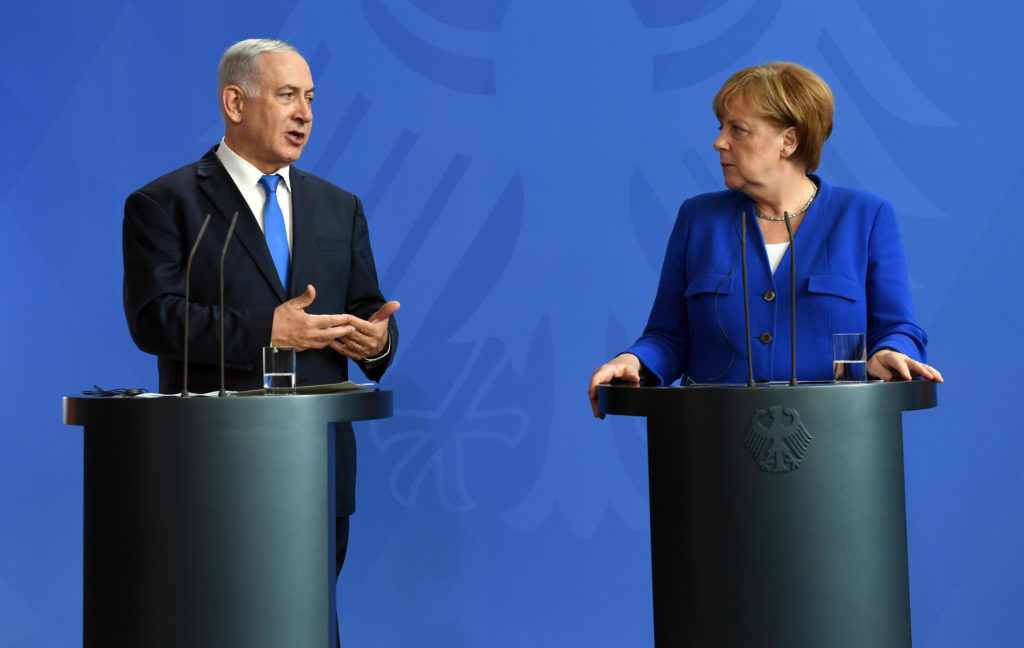
With the International Criminal Court (ICC) seeking to determine if “Palestine” qualifies as a state and is therefore under the Court’s jurisdiction for war crimes cases, nations from across the globe recently have argued against the Court deciding this sensitive matter. Israeli Prime Minister Benjamin Netanyahu commended Germany, Australia, Austria, Brazil, the Czech Republic, Hungary and Uganda, which “have joined the [United States] in a steadfast stand alongside Israel.”
“I have spoken with several leaders from these countries and along with international organizations and leading experts in the world; they have expressed a clear stand that the international court has no authority to discuss the conflict between the State of Israel and the Palestinians,” Netanyahu told the Israeli cabinet on Sunday in comments released by his office.
In their application to file observations to the ICC, which was posted to the ICC website, Germany noted that the only definition of statehood for the ICC is the norm under international law. “It is Germany’s consistent position that a Palestinian State, and the determination of territorial boundaries, can be achieved only through direct negotiations between Israelis and Palestinians,” the German’s argued. “The Court would be ill-suited for determination of these issues.”
Germany noted that efforts to upgrade the Palestinian position in international forums, including the United Nations General Assembly, did not elevate it to legal statehood. “Palestine does not possess nor did it ever possess the jurisdiction that it would need to delegate to the Court in order for the Court to exercise jurisdiction,” said the German letter.
Meanwhile, Brazil—despite recognizing the State of Palestine in 2010—in their letter to the ICC noted that such “unilateral” recognition does not necessarily result in legal statehood. On the contrary, Brazil—led now by the conservative President Jair Bolsonaro—argued that the ICC determining Palestine’s state status as part of the review would be detrimental to the Middle East peace process.
“In Brazil’s view, the complex Israeli-Palestinian question needs to be addressed through political dialogue between the parties and not through an international criminal process, which would be detrimental to both justice and peace,” said the Brazilian letter to the Court, which was also posted to the ICC website.
Netanyahu, in his comments to the Israeli cabinet meeting on Sunday noted that the nations supportive of Israel’s position on the case were battling a bigger problem at the ICC than just this one situation.
“They are trying to prevent the ugly politicization of the international court; however, to my regret, this has already happened,” said Netanyahu. “The fact that many countries have lined up alongside us, and alongside the US, is a fact that certainly needs to encourage every friend of Israel around the world and every citizen of Israel.”
While the ICC case is trying to determine in part the status of Palestinian statehood, the United States and Israel are busy working to map out Israeli sovereignty over Jewish communities in Judea and Samaria and the Jordan Valley. Netanyahu, on Sunday, named the members of the Israeli team working with the Americans aiming to determine these exact borders, as part of the Trump Administration’s “Deal of the Century” peace plan. The plan also offers the potential for Palestinian statehood, if certain conditions are met.
Netanyahu said the territorial mapping of Israeli sovereignty in the Biblical heartland—which is also claimed by the Palestinians as part of the so-called “West Bank”—is “already begun—it is underway.”
“We will complete the work as quickly as possible,” said Netanyahu. “We are turning parts of the homeland in Judea and Samaria into part of the State of Israel forever.”
The case before the ICC is pushing in the opposite direction, aiming to determine the Palestinian territory outside political negotiations with Israel—at least for purposes of determining the Court’s jurisdiction for potential war crimes. That work, Netanyahu noted, is part of a broader effort to assail the legitimacy of Israelis living in their historical homeland, which includes Biblical site such as Hebron, Beit El and more. Thankfully, Israel isn’t alone in their response.
“This international court in The Hague has long since become a political instrument in the war against Israel,” said Netanyahu. “It is currently trying to turn the fact of our being in our homeland into a war crime. We are struggling against this and at our side, I must say, are many friends around the world.”
(By Joshua Spurlock, www.themideastupdate.com, February 16, 2020)
